Update time:2025-06-19Visits:13982
Dr. He Chuan

Dr. Chuan He is the Chief Physician of the Department of Orthopedics at Ruijin Hospital, affiliated with the Shanghai Jiao Tong University School of Medicine, and also a Master's Supervisor. He holds a Doctor of Medicine degree and has specialized research and practice in the field of joint surgery. Dr. He is particularly skilled in the diagnosis and treatment of hip and knee joint diseases, with profound expertise and extensive experience in minimally invasive artificial joint replacement surgery. He completed advanced studies at the Hospital for Special Surgery in New York, USA, the birthplace of modern artificial joint surgery.
In his clinical work, Dr. He places special emphasis on a humanistic treatment philosophy, advocating for minimally invasive and pain-free concepts in joint surgery, and is committed to rapid post-operative recovery measures. His professional expertise includes minimally invasive unicompartmental knee replacement, total knee/hip replacement surgery, and total knee/hip revision surgery. Additionally, Dr. He has conducted in-depth research on the diagnosis and treatment of hip and knee joint deformities, developmental abnormalities, degenerative or inflammatory diseases, femoral head necrosis, and sports injuries.
In the academic field, Dr. He has published over thirty papers in domestic and international journals and conferences over the past decade. He has led and completed two projects funded by the National Natural Science Foundation of China and participated in numerous national and municipal research projects, holding four invention patents. He is a member of the Artificial Joint Infection Study Group and the Digital Orthopedics Study Group of the Orthopedic Surgeon Branch of the Chinese Medical Doctor Association, as well as a member of the Digital Orthopedics Study Group of the Medical Engineering Branch of the Chinese Medical Association.

Time flows through his fingertips, gradually shaping different eras. Like a resilient pine tree, his steadfast presence has weathered the cycles of seasons, growing ever more robust and flourishing.
A decade ago, he was a young doctor brimming with passion and relentless drive, his pursuit of medical mastery bordering on obsession. Yet, as the years passed, he learned the wisdom of knowing when to advance and when to retreat—a lesson in balance.
Several years ago, he experienced the trials of being a patient himself. Lying in a hospital bed, he endured the torment of illness, grappling with the helplessness and anxiety that patients often face. This experience deepened his understanding of medicine. He realized that while technical skill is essential, the heart of medicine lies in genuine human connection. Since then, he has placed greater emphasis on communication with his patients.
In his younger days, he bore the weight of responsibility alone, setting impossibly high standards for himself. His days were consumed by relentless work, leaving no room for rest or reflection. But now, he understands the limits of individual effort. Gradually, he has shifted his focus to mentoring young doctors, aiming to cultivate a strong, capable team rather than relying solely on his own abilities.
"Like the young doctors of today, I was once full of energy and drive, feeling invincible every day," he reflects. "Now, effective communication with patients and efficient team management have become indispensable parts of my work."
He no longer obsesses over achieving a perfect score of 100. Instead, he believes that a 90—a result that prioritizes the patient’s well-being—may be more beneficial. Medicine has its limitations, and what matters most is striving for the best possible outcome within those constraints.

1、A Journey of Growth Through Challenge
In the blink of an eye, a full decade has passed since our last interview.
He has transformed from a surgeon wholly focused on the operating table to a pivotal leader guiding his team in the ongoing exploration of orthopedic medicine.
Born into a family of medical professionals, Dr. Chuan He is now the Chief Physician of Orthopedics at Ruijin Hospital, affiliated with the Shanghai Jiao Tong University School of Medicine. Patients from across the country increasingly seek him out for his expertise.
Over the years, Dr. He’s growth has extended far beyond his medical skills. It has deepened into profound reflections on medicine, patients, and life itself.
“When I first became a doctor, I was filled with enthusiasm, believing I could solve every problem,” he recalls. “Gradually, I realized that medicine is not an exact science. It’s filled with uncertainties and imperfections. This realization has made me approach my practice with even greater humility and reverence.”
A decade ago, Dr. He was hospitalized due to overwork. In his memory, it was an incredibly challenging time. As a doctor who stood at the operating table every day, he suddenly found himself in the role of a patient, dependent on others for care. This shift in perspective led him to deeply consider the “patient experience.”
“I remember one day, my leg was swollen like a barrel, and my eyelids were so puffed I could barely see,” he shares. “I had to step away from my role as a doctor and become a patient, admitted to the hospital. I went through the familiar routines of IV drips, punctures, pre-surgery discussions, and signing consent forms. Once, a young nurse struggled to insert a needle into my severely swollen arm. After seven or eight failed attempts, I tried to comfort her by joking, ‘It’s okay, I had to practice a lot to get where I am too.’ During that period, I felt deeply frustrated and even anxious. I worried whether I’d ever be able to pick up a scalpel again, or if my career as a doctor was over.”
Perhaps it was this unique experience that gave Dr. He a new perspective on his profession, his patients, and his future. He reflects that he is no longer just a doctor focused solely on medical techniques. Instead, he has become a healer who truly understands the inner world of his patients, empathizing with their pain and needs.

2、The Power of Trust in Healing
After recovering from his own illness, Dr. Chuan He returned to work without missing a beat.
Soon after, he encountered a patient named Mr. Feng, whose story would leave a lasting impression. Diagnosed with Hemophilia A as a child, Mr. Feng, now in his 40s, had endured over three decades of recurrent joint bleeding. His lower limbs were severely damaged, with his right leg shortened to the point that he needed a 6 cm heel lift just to stand. Most of the time, he relied on crutches and an electric wheelchair to get around.
“Mr. Feng was a resilient and optimistic man who ran a small bed-and-breakfast in Shanghai. Despite his struggles, he actively supported others with hemophilia. But the relentless pain and disability had stripped him of the ability to walk, turning his daily life into a constant battle,” Dr. He shared.
One sunny afternoon, Mr. Feng’s child asked him, “Dad, why do you walk so funny?” The question hit him hard. It was a wake-up call—he couldn’t go on like this. He had to find a way to stand up again, not just for himself, but for his family.
That’s when he came to Ruijin Hospital and sought out Dr. He, hoping for a chance to turn his life around.
“Despite the high risk of complications for hemophilia patients, after a thorough evaluation and with Mr. Feng’s consent, we decided to proceed with hip and knee replacement surgery. The procedure carried significant bleeding risks, potentially life-threatening. But who doesn’t strive for a better version of themselves? We respected Mr. Feng’s choice,” Dr. He explained.
For Dr. He, this wasn’t just a complex surgery—it was a test of trust between doctor and patient. He opted to use robotic-assisted technology to perform both the hip and knee replacements in one operation. It was an unprecedented challenge, pushing the limits of both technology and patience.
Preparation was key. Dr. He and his team meticulously crafted a 3D digital model of Mr. Feng’s anatomy, simulating the entire procedure. With the robot’s precision, they successfully completed both joint replacements in a single surgery.
“Before the operation, we carefully managed Mr. Feng’s clotting factors. The surgery itself was the real test. With meticulous care, it went smoothly. When Mr. Feng was wheeled out of the operating room, I felt a mix of emotions—eagerly hoping his recovery would be successful and that he would stand again,” Dr. He recalled.
Thanks to the team’s attentive care, Mr. Feng recovered remarkably well. He stood up—without crutches!
“Two months later, Mr. Feng sent me a photo of himself hiking on the Great Wall. I think, in that moment, he felt a freedom he hadn’t known in years. His child saw a father who could stand tall, and I couldn’t have been happier for him. That sense of fulfillment is something I’ll never forget,” Dr. He said.
For many doctors, building trust with patients isn’t easy, yet it’s an essential ingredient for any successful surgery.
Dr. He also shared the story of an elderly woman in her 80s who had undergone a hip replacement over two decades ago. After a fall, she came to Dr. He for help. The examination revealed a far more complex issue than expected—severe wear and tear on the artificial joint, bone loss, and fractures. Dr. He’s team quickly performed a delicate and intricate repair surgery.
“The initial surgery was successful, but unfortunately, her joint became infected. At first, she was devastated, even breaking down in tears in the hospital room. It was heartbreaking for all of us,” Dr. He recalled.
Faced with her despair, Dr. He didn’t give up. He patiently explained the cause of the infection and the treatment plan, helping her rebuild her confidence and hope. Over time, she began to trust Dr. He and actively cooperated with the treatment.
“Her change in attitude gave us the confidence to try every possible method to help her recover,” Dr. He said.
Soon after, Dr. He’s team performed a second, more complex and time-consuming surgery. The woman eventually regained her normal life and became one of Dr. He’s most loyal supporters, staying in touch for years.
“This patient left a deep impression on me because she taught me that doctor-patient relationships go beyond the surface. Only through genuine communication and understanding can we truly solve problems. Sometimes, constructive conflict and dialogue can even be part of building trust. As doctors, we must manage both our own emotions and those of our patients to lay the foundation for effective and open communication,” Dr. He reflected.



3、The Joy of Driving Medical Innovation
Over a decade ago, Ruijin Hospital’s Orthopedics and Radiology departments pioneered the development of "Metal Artifact Reduction in MRI" technology in China. After ten years of relentless effort, this technique has now been widely adopted across the country, a milestone that fills Dr. Chuan He with immense pride.
Metal Artifact Reduction in MRI is a technique designed to minimize image distortions caused by metal objects (such as pacemakers or artificial joints) during MRI scans. These distortions can blur or warp the images, making accurate diagnosis challenging. To address this, Ruijin Hospital’s Orthopedics and Radiology teams collaborated to develop innovative imaging methods that produce clearer, more precise results.
For Dr. He, the endless pursuit of medical innovation is a source of great fulfillment.
“Beyond MRI technology, we’ve also been deeply involved in research on surgical robotics, minimally invasive techniques, and the application of new materials,” he shared.
In 2009, Dr. He traveled to the United States for advanced training. It was his first exposure to the integration of medicine and engineering in orthopedics. Visiting one of the most renowned orthopedic hospitals in the U.S., he witnessed the seamless collaboration between doctors and engineers, which left a profound impact on him.
“During surgeries, if the lead surgeon encountered an issue with the equipment or had a new idea, they’d call over the observing engineer right there in the operating room to explain what needed improvement. This immediate feedback allowed the engineers to better understand the doctors’ needs, and they could often deliver a refined prototype within days,” Dr. He recalled.
“At the time, I wondered if Chinese hospitals could adopt a similar approach, quickly addressing challenges and improving tools through close collaboration with engineers.”
Upon returning to China, Dr. He began experimenting with this model of integration, partnering with domestic companies for research and development. He often invited engineers into the operating room for discussions or held virtual meetings to ensure real-time communication.
“The biggest challenge in integrating medicine and engineering is bridging the communication gap between doctors and engineers. Engineers and software designers often lack a deep understanding of medical procedures or human anatomy. It takes repeated discussions and explanations to help them grasp the clinical needs and the significance of the improvements. Only then can they design tools that truly meet the demands of medical practice,” Dr. He explained.
Dr. He firmly believes that the integration of medicine and engineering is not just a solution to current challenges but also the future of medical advancement. This collaborative approach has enabled his team to develop smarter, more personalized medical tools and software, improving surgical success rates and shortening patient recovery times.
“In this process, doctors play dual roles as clinical scientists and guides. We treat diseases while constantly innovating and refining our methods. China has a vast pool of talented engineers, and their technical expertise is exceptional. I believe this will be a significant advantage in advancing our medical technology,” Dr. He said.
He is confident that China’s integration of medicine and engineering will not only catch up but also lead the way globally.
“I still remember the first time I saw a surgical robot in the U.S. Back then, the technology was in its early stages and seemed somewhat rudimentary, but it already showed immense potential. I thought to myself, ‘What if we could have something like this in China?’” Dr. He’s vision has gradually become a reality.
Today, China’s surgical robotics technology has achieved significant milestones. Domestic robots are becoming increasingly precise, catching up to international standards while developing unique technological features. These advancements have greatly enhanced the safety and effectiveness of surgeries.
Dr. He is optimistic about the future. To him, the integration of medicine and engineering represents not just technological progress but also a shift in mindset—one that will drive the overall development of the medical industry.



4、Shaping the Future: Mentoring the Next Generation
Beyond his daily responsibilities, Dr. Chuan He takes on the vital mission of nurturing his team and mentoring students. For him, medicine is not just a personal career—it’s a collective endeavor. He firmly believes that the long-term growth of the field depends on the development of the entire team. A great doctor, in his view, must possess not only solid professional skills but also a strong sense of teamwork and a commitment to passing on knowledge. One of his proudest achievements is that every graduate student he has mentored has earned the distinction of “Outstanding Graduate.”
“Unity and collaboration are the keys to solving problems efficiently as a team,” Dr. He often says.
In leading his team, Dr. He emphasizes the importance of cooperation. He believes that medicine is a highly interdisciplinary field, and tackling complex cases requires more than individual effort. To foster this, he focuses on building trust among team members, encouraging everyone to actively participate in discussions and share their insights and experiences. This collaborative approach helps the team find the best solutions together.
Dr. He frequently shares his clinical experiences with his students, walking them through his thought processes when dealing with challenging cases. He aims to teach them how to think independently and develop problem-solving skills in real-world scenarios. He also encourages students to engage in research projects, helping them achieve breakthroughs in their academic pursuits.
“The future of medicine lies in the hands of the younger generation. Curiosity and a relentless drive to explore are the cornerstones of medical progress,” Dr. He emphasizes.
He hopes that each of his students will maintain a deep passion and respect for medicine throughout their careers. When faced with challenges, he wants them to approach them courageously and proactively seek the best solutions. At the same time, he encourages them to continually refine their skills and become doctors whom patients can trust.
“No matter where your career takes you, always remember to treat every patient with care and empathy, paying attention to their needs and feelings,” Dr. He often reminds his students. He believes that prioritizing the well-being of patients is the true essence of being a doctor.
Dr. He’s dedication to mentoring and teamwork reflects his vision for the future of medicine—a field driven by collaboration, innovation, and a profound commitment to patient care.


Onsite Interview
ShanghaiDoctor.cn:
Dr. He, what unique insights do you have when it comes to communicating with patients? How do you ensure better understanding and care for them?
Dr. Chuan He:
When communicating with patients, I believe the most important things are empathy and sincerity. My own experience with illness over the past few years has given me a profound understanding of the fear and anxiety patients feel. So, when I talk to patients, I try to put myself in their shoes and communicate in a way that resonates with their emotions. I listen patiently to their concerns and explain their condition and treatment plan in simple, clear language to ease their worries. I also encourage patients to participate in treatment decisions, making them feel respected. Through these efforts, I aim to build trust with my patients and provide them with more compassionate care.
ShanghaiDoctor.cn:
With the rapid advancement of medical technology, how do you see the role of surgical robots in the future of medicine? Will they replace doctors?
Dr. Chuan He:
Surgical robots are undoubtedly a significant milestone in medical technology, playing a crucial role in improving the precision and safety of surgeries. However, I believe it’s still too early to say that robots will completely replace doctors. Right now, robots are powerful tools in the hands of doctors—they can assist with complex procedures, but the final decisions and critical operations still require a doctor’s professional judgment. The experience and intuition of a doctor cannot be replicated by robots. Additionally, the human connection and emotional support that doctors provide to patients are something robots cannot offer.
ShanghaiDoctor.cn:
For young doctors just starting their careers, how do you think they can quickly improve their medical skills and professional qualities?
Dr. Chuan He:
For young doctors to grow, I think the first step is to build a strong foundation, which includes solid medical knowledge and clinical skills. They need to continuously learn and practice to gain experience. Young doctors should actively participate in academic conferences and seminars, learning from seasoned professionals. Second, they need to learn how to make decisions, which requires courage and determination. They’ll learn from their mistakes, constantly reflecting and improving. Additionally, young doctors should develop strong communication skills, learning how to effectively communicate with patients and their families. Finally, they should embrace innovation and be willing to try new treatment methods and technologies. Through these approaches, young doctors can quickly enhance their expertise and become outstanding medical professionals.
ShanghaiDoctor.cn:
Dr. He, we understand that your perspective on life has changed after your illness. How have your personal hobbies evolved, and how has your philosophy shifted?
Dr. Chuan He:
After recovering from my illness, I realized that life is much more than just work—there are many precious elements worth cherishing. I’ve started to rethink my approach to work and life, striving to reconnect with the people and things I once overlooked. I’ve learned to slow down and enjoy every moment of life, and I’ve come to treasure the time spent with family and friends even more. These experiences have given me a deeper understanding of the true meaning of life. At work, I now focus more on team building and development. I used to be a perfectionist, but now I believe that while striving for excellence is important, it’s also necessary to find balance and acceptance when it comes to imperfections. Sometimes, from a different perspective, “imperfection” might just be its own kind of “perfection.”
General Editor: Qing Chen @ ShanghaiDoctor.cn
If you'd like to contact to Dr. He, Please be free to email us at chenqing@ShanghaiDoctor.cn.
Copyright: This article is an original work and may not be reproduced without authorization. For reprint requests, please leave a message in the backend of [Ye Wen Ren Yi (ShanghaiDoctor.cn)]. When authorized for use, please credit: “Source: [Ye Wen Ren Yi] (ShanghaiDoctor.cn) and the author.” All article rights belong to [Ye Wen Ren Yi] (ShanghaiDoctor.cn). Some images are sourced from the internet; infringement will be addressed upon notice.
Dr. Liang Wei | Dedicated to Vascular Health, Safeguarding the Body’s Lifelines
Dr. Zou Shien | A Physician’s Mission in Gynecological World
Dr. Bao Shihua | Where Dreams Begin from Reproductive Immunology
Dr. Yang Zhigang | The Art of the Healer: Between the Brush and the Brain
Dr. Cai Junfeng | Guarding Bone and Joint Health, Improving Quality of Life
Dr. Xu Xiaosheng|The Gentle Resilience of a Male Gynecologist
Dr. Shi Hongyu | A Cardiologist with Precision and Compassion
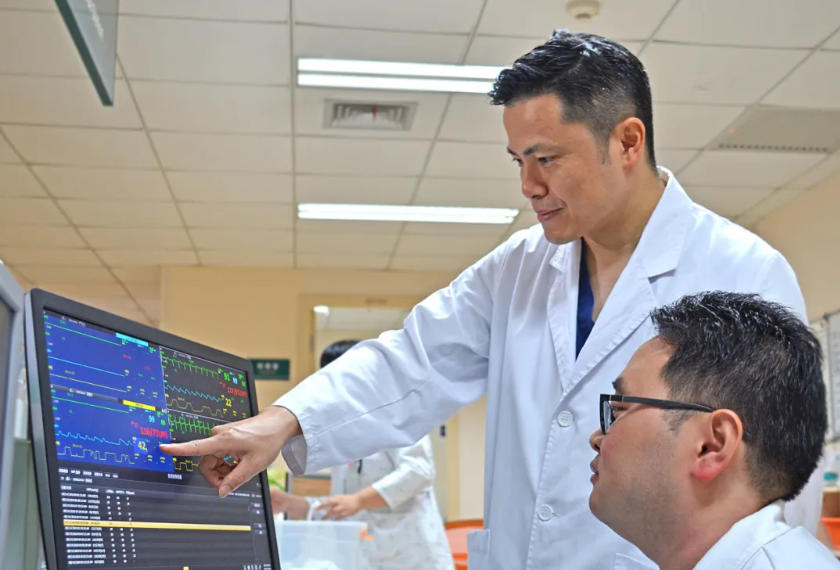
Dr. Liang Wei | Dedicated to Vascular Health, Safeguarding the Body’s Lifelines
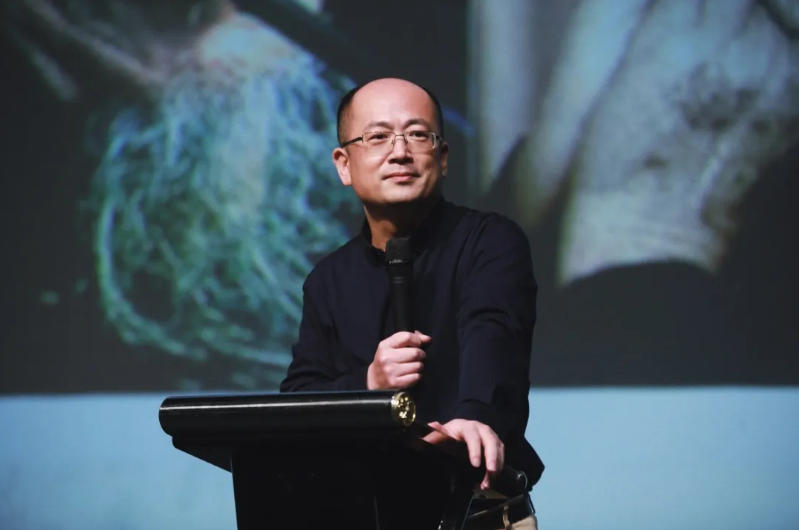
Dr. Zou Shien | A Physician’s Mission in Gynecological World
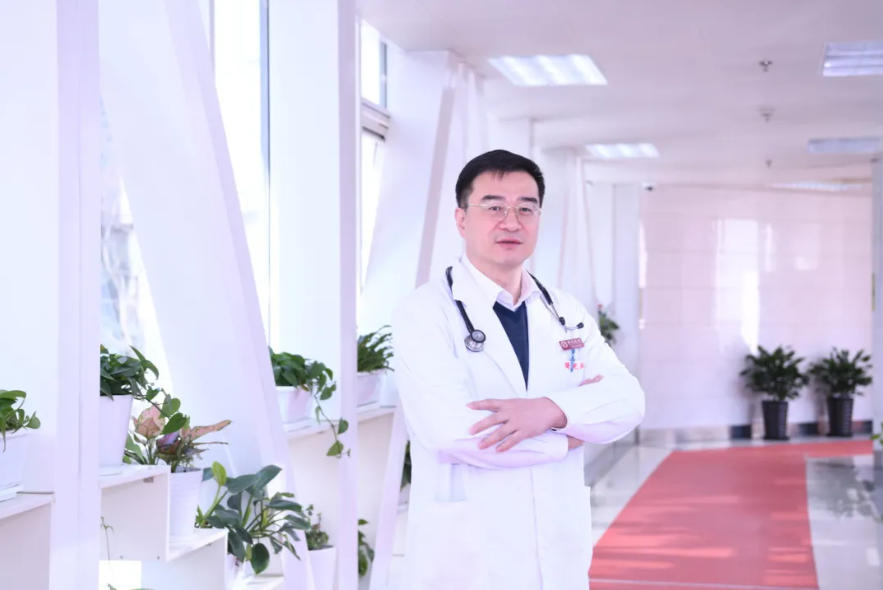
Dr. Cui Song | Healing the Heart, in Every Sense
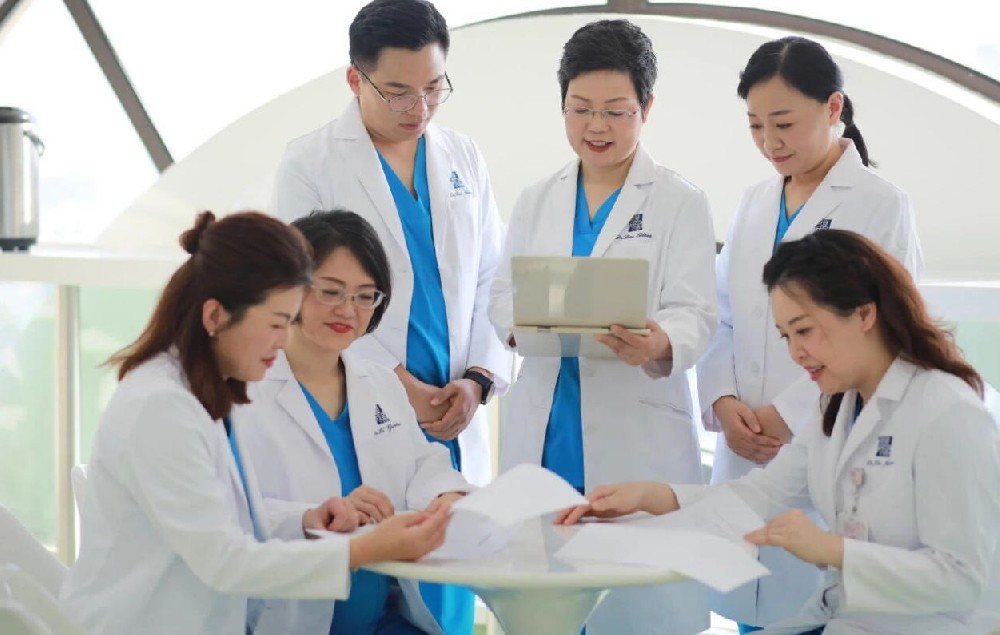
Dr. Bao Shihua | Where Dreams Begin from Reproductive Immunology
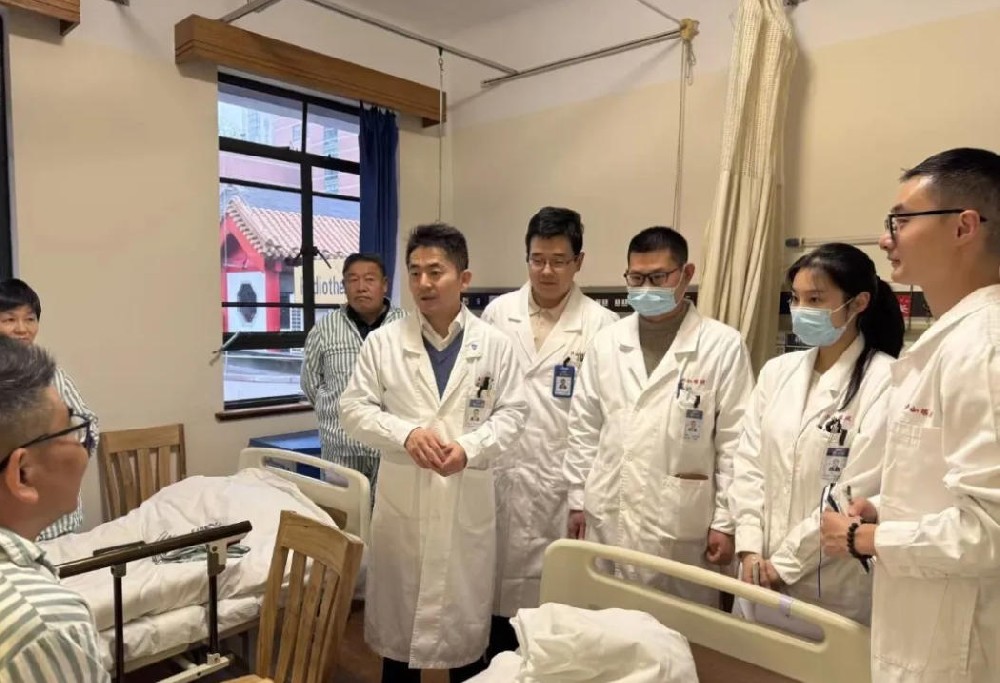
Dr. Yang Zhigang | The Art of the Healer: Between the Brush and the Brain
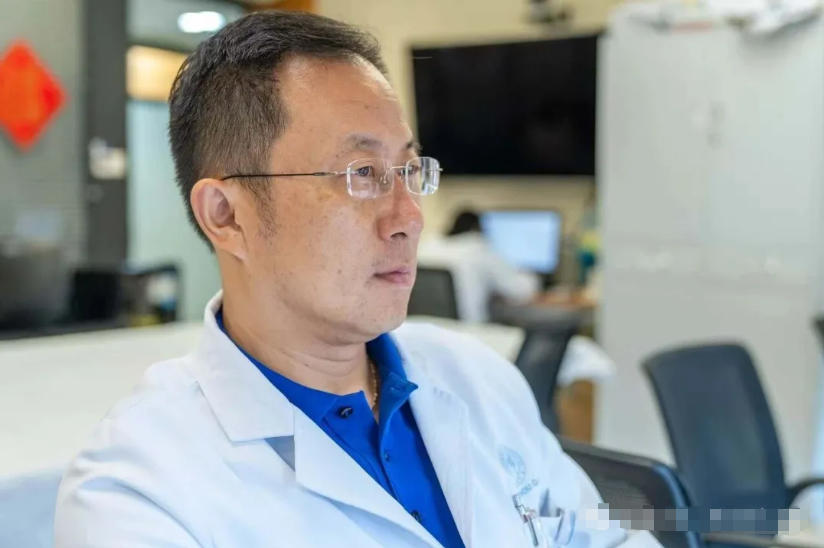
Dr. Zhou Qianjun | Sculpting Life in the Chest
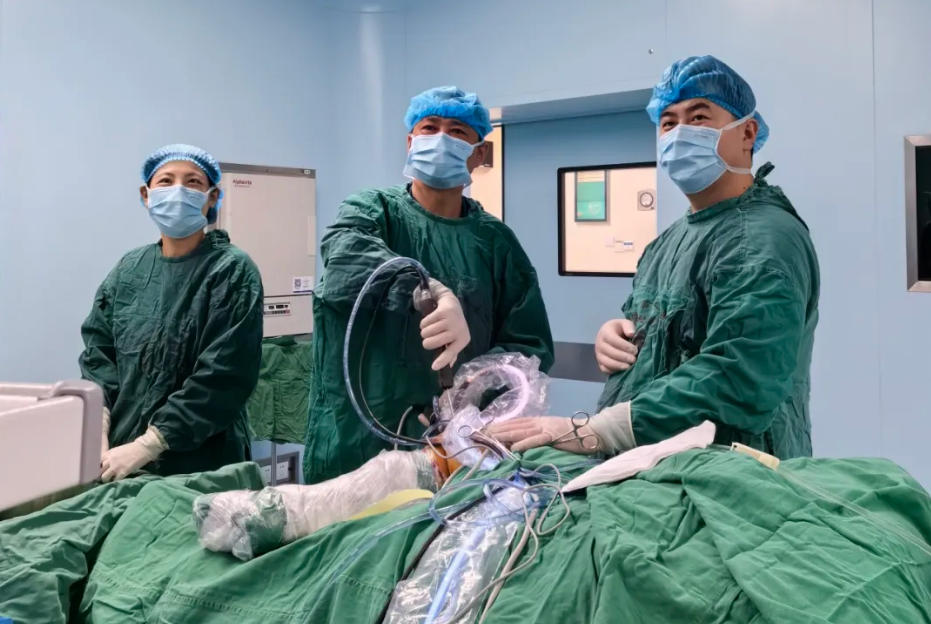
Dr. Cai Junfeng | Guarding Bone and Joint Health, Improving Quality of Life
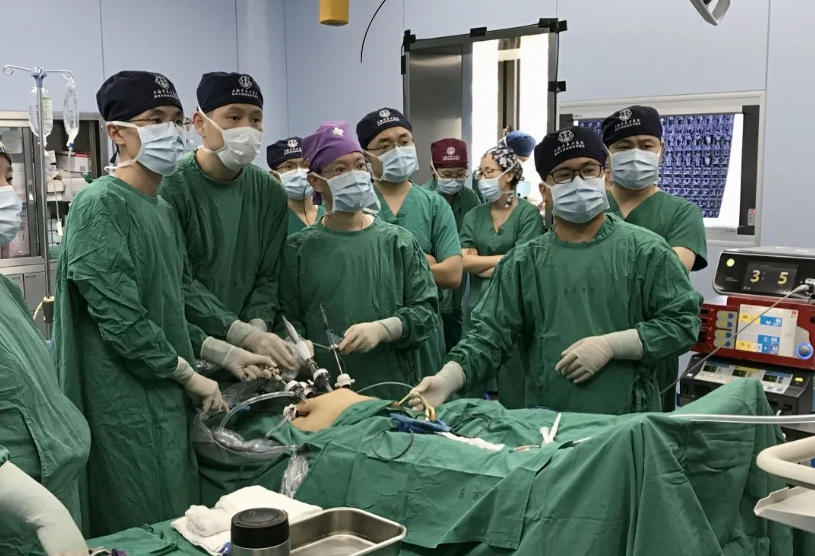
Dr. Cui Xingang | The Medical Dream of a Shanghai Urologist

Dr. Xu Xiaosheng|The Gentle Resilience of a Male Gynecologist

Dr. Shi Hongyu | A Cardiologist with Precision and Compassion